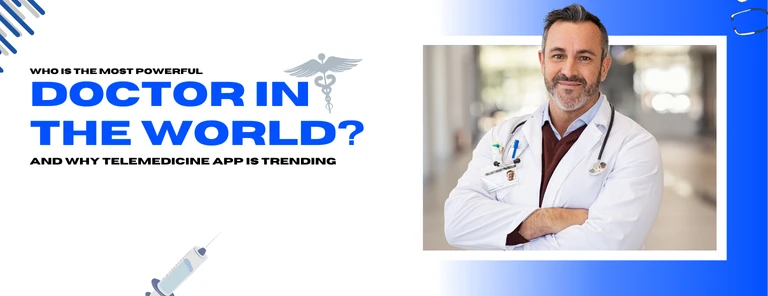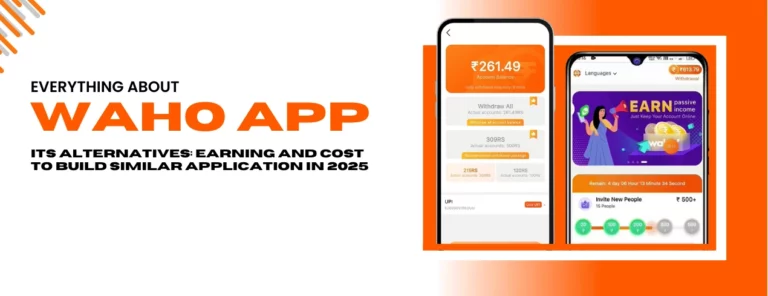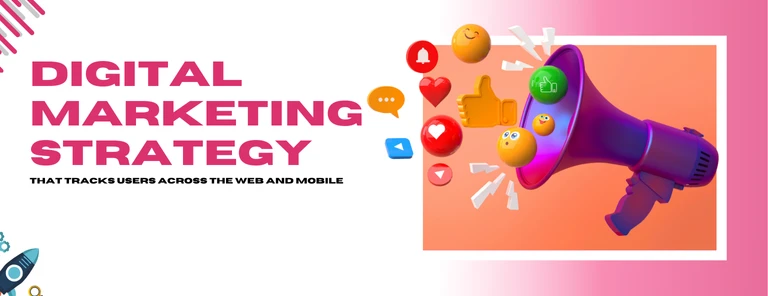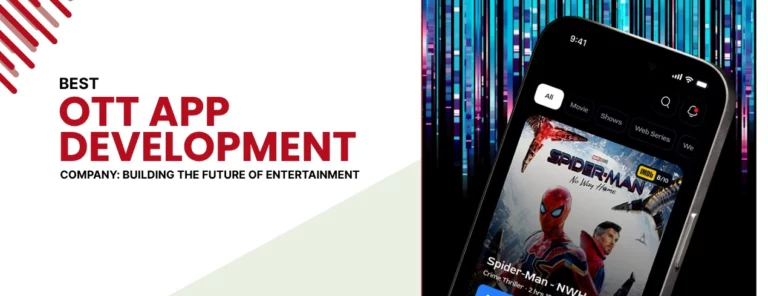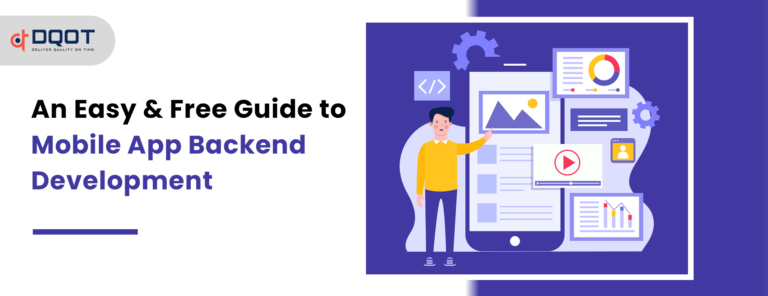In today’s world, power in the medical field isn’t just about performing life-saving surgeries or treating patients in hospitals. It extends beyond that—impacting global healthcare policies, funding medical research, and even shaping public health decisions. Some doctors influence millions without ever stepping into a hospital.
The world has seen some of the most influential medical figures shaping healthcare policies, leading groundbreaking research, and funding massive health initiatives. But when asked, “Who is the most powerful doctor in the world?”, one name that often comes up is Bill Gates.
But wait—Bill Gates is not a medical doctor. So, how did he become one of the most powerful figures in global healthcare? And how does telemedicine, a rapidly growing industry, fit into this discussion? As telemedicine app development companies drive digital transformation in healthcare, the industry is evolving like never before.
Table of Contents
Bill Gates: The Unconventional Doctor
At first glance, it might seem unusual to call Bill Gates a “doctor.” He has no medical degree, never treated a patient, and didn’t attend medical school. Yet, his influence on global health surpasses that of many practicing physicians.
Philanthropy in Global Health
Through the Bill & Melinda Gates Foundation, Gates has poured billions of dollars into global health initiatives. His foundation has been at the forefront of eradicating polio, fighting malaria, and funding vaccine research.
- Over $50 billion has been donated to healthcare and medical research.
- Major funding to the World Health Organization (WHO) has made him a key player in global health policies.
- Investments in vaccine development, particularly during the COVID-19 pandemic, made him an influential figure in global immunization efforts.
Influence on the World Health Organization
Due to his financial contributions, Gates holds significant sway in organizations like the WHO. Critics argue that his influence might be too strong, shaping policies in ways that serve the private sector. However, there’s no denying that his contributions have saved countless lives.
Initiatives in Disease Eradication
Gates has made it his mission to eradicate diseases that have plagued humanity for centuries. Some of his major initiatives include:
✅ Funding malaria research with the goal of eradicating the disease by 2040.
✅ Supporting polio vaccination programs in developing countries.
✅ Investing in research for HIV/AIDS treatment and prevention.
This level of influence begs the question—if power is measured by impact, does that make Bill Gates the most powerful doctor in the world despite not having a medical degree?
Bill Gates, co-founder of Microsoft, has significantly impacted global healthcare despite not being a licensed physician. His contributions through funding, research, and policy influence have positioned him as the most powerful figure in medicine. Here’s why:
✅ Global Vaccination Programs 💉 – The Gates Foundation has funded and distributed vaccines worldwide, reducing diseases like polio and malaria.
✅ COVID-19 Pandemic Response 🌍 – Gates played a crucial role in funding vaccine development and distribution strategies.
✅ AI & Digital Healthcare Innovations 🤖 – Investing in artificial intelligence and big data for predictive healthcare solutions.
✅ Policy & Philanthropy 🏥 – His foundation collaborates with WHO, influencing global health policies and funding research initiatives.
🔹 “Healthcare innovation is not just about treating diseases; it’s about preventing them before they start.” – Bill Gates
His impact extends beyond medicine into technological advancements that shape healthcare’s future, making him the most powerful doctor in the world despite not having an MD.
Traditional Medical Powerhouses
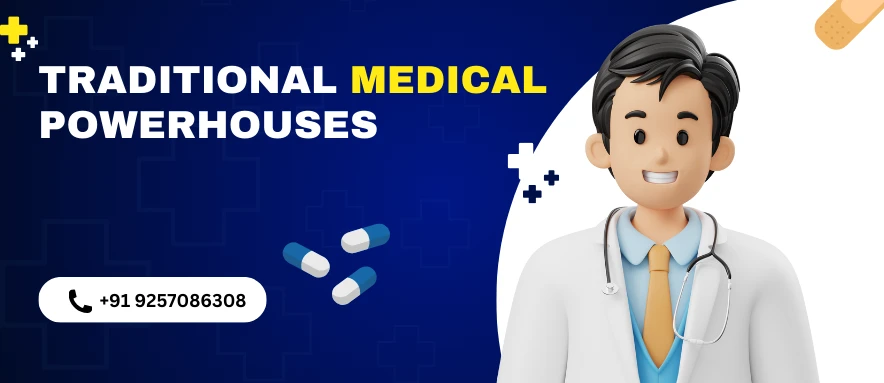
While Bill Gates may be the most influential non-doctor in medicine, many traditionally trained doctors have had an immense impact on global health.
Dr. Anthony Fauci: America’s Leading Infectious Disease Expert
Dr. Anthony Fauci has been one of the most trusted figures in public health, leading the U.S. response to infectious diseases for decades.
- His work on HIV/AIDS research in the 1980s changed the way we understand the disease.
- He played a pivotal role in the COVID-19 pandemic, guiding policies and public health strategies.
- His influence extends beyond the U.S., shaping global pandemic responses.
Dr. William A. Abdu: Innovations in Orthopedics
Dr. Abdu has revolutionized spinal treatments, bringing innovative solutions to orthopedic care. His research has helped improve patient outcomes and has shaped new treatment methodologies for spinal injuries.
The Rise of Telemedicine: A Global Perspective
One of the biggest revolutions in modern healthcare is telemedicine. Telemedicine apps have made it possible for patients to connect with doctors remotely, eliminating the need for physical hospital visits.
The COVID-19 pandemic accelerated the adoption of telemedicine, making virtual healthcare an essential part of the medical industry.
- 📱 Patients can consult with doctors from their homes.
- ⏳ Reduced waiting times and faster diagnoses.
- 💰 Cost-effective solutions for both doctors and patients.
Countries worldwide are integrating telemedicine into their healthcare systems, making medical consultations more accessible, affordable, and efficient.
Why Telemedicine Apps Are Trending
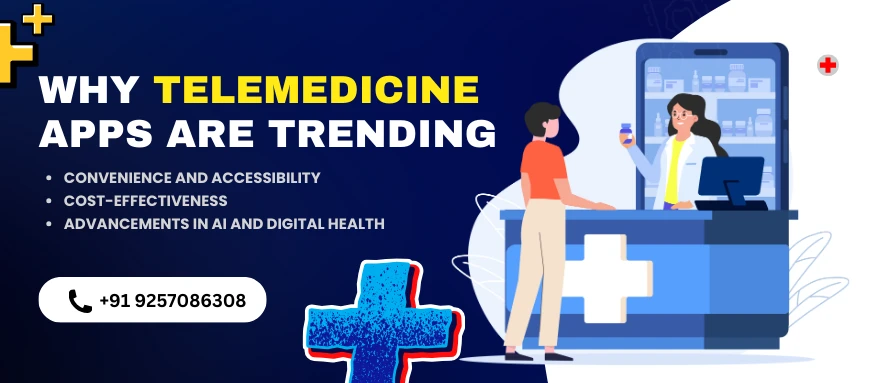
1. Convenience and Accessibility
One of the biggest reasons telemedicine apps are gaining traction is their ability to bring healthcare to people’s fingertips.
Instead of traveling miles to see a doctor, patients can now consult medical professionals within minutes. This is especially beneficial for those in rural areas with limited access to healthcare facilities.
2. Cost-Effectiveness
Telemedicine significantly reduces medical costs for both patients and healthcare providers. Fewer hospital visits, reduced administrative expenses, and streamlined medical consultations make healthcare more affordable.
3. Advancements in AI and Digital Health
Artificial intelligence (AI) is revolutionizing telemedicine, allowing for:
- Automated diagnostic tools
- AI-driven health assessments
- Digital prescription management
These advancements make telemedicine smarter, faster, and more efficient.
Telemedicine Trends in Leading Countries
1. United Kingdom 🇬🇧
- The NHS has integrated telehealth services to reduce hospital loads.
- Online consultations are becoming more common in public healthcare.
2. Japan 🇯🇵
- Cutting-edge robotic telemedicine is being developed.
- AI-powered remote monitoring is gaining popularity.
3. United States 🇺🇸
- Private companies are investing heavily in telehealth platforms.
- Policies are evolving to support virtual healthcare services.
4. Canada 🇨🇦
- Overcoming geographical barriers through telehealth solutions.
- Increased focus on mental health teletherapy.
5. India 🇮🇳
- Rapid adoption of telemedicine in rural healthcare.
- Government initiatives promoting digital healthcare.
📱 Why Are Telemedicine Apps Trending in 2025?
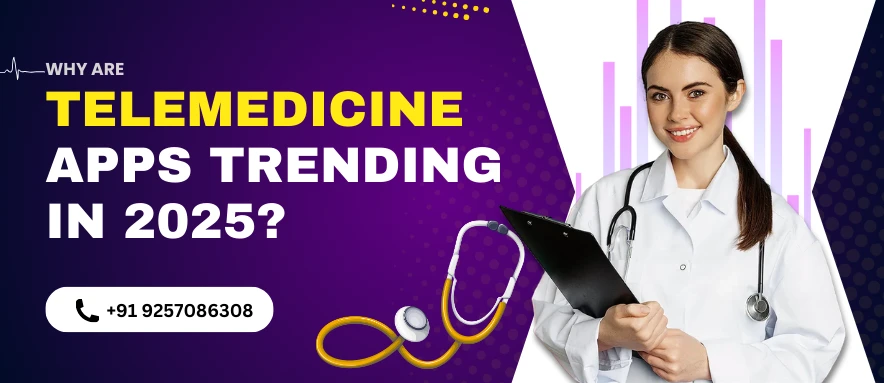
The Digital Healthcare Revolution 🌐
Telemedicine apps are at the forefront of the digital health revolution. Countries like the USA, UK, Japan, Canada, and India are leading the charge in remote healthcare solutions. Here’s why telehealth is the future:
🚀 1. Accessibility & Convenience
Patients can now consult doctors from anywhere, anytime without the hassle of physical visits. This is particularly beneficial for rural and remote areas where healthcare infrastructure is limited.
📉 2. Reduced Healthcare Costs
Virtual consultations cost significantly less than traditional hospital visits, making healthcare more affordable and accessible to everyone.
🏥 3. AI-Powered Diagnosis & Smart Health Monitoring
With AI integration, telemedicine apps can analyze symptoms, suggest treatments, and even predict potential diseases before they worsen. Smart wearables monitor health data in real-time, assisting doctors with accurate diagnoses.
🔬 4. COVID-19 & Beyond: The Push for Telehealth
The pandemic accelerated telemedicine adoption, with 80% of hospitals in developed nations now offering virtual healthcare services. This trend continues to grow as more people prefer remote consultations over in-person visits.
📊 5. Investment & Market Growth
Investors are heavily funding health-tech startups due to the booming telemedicine market. The global telemedicine market is projected to reach $460 billion by 2030.
👉 “Telemedicine is not just the future; it’s the present. The convenience, affordability, and efficiency it offers are unmatched.” – HealthTech Investor
🏆 Dqot Solutions: The Leading Telemedicine App Development Company
As a pioneer in telemedicine app development, Dqot Solutions offers cutting-edge solutions for healthcare providers and startups looking to enter this lucrative industry. Here’s why Dqot Solutions is your ultimate partner in digital health:
🔹 1. Custom Telemedicine App Development
We provide tailor-made solutions for hospitals, clinics, and independent practitioners to enhance patient engagement and streamline consultations.
🔹 2. AI & ML-Enabled Features
Our apps integrate AI-driven chatbots, predictive analytics, and automated health monitoring for a seamless healthcare experience.
🔹 3. Secure & Compliant Platforms
With HIPAA, GDPR, and HITECH compliance, we ensure data security and confidentiality for every patient and healthcare provider.
🔹 4. Multi-Platform Compatibility
Dqot Solutions builds cross-platform apps compatible with iOS, Android, and Web, making healthcare accessible from any device.
📢 “If you’re looking to develop a next-gen telemedicine app, Dqot Solutions is your ideal partner for innovation and growth.”
📊 Future Investment Opportunities in Telemedicine
🔥 1. Telehealth Startups & Unicorns
The rise of health-tech unicorns has attracted venture capitalists and private equity firms. Investors are eyeing promising telemedicine startups that focus on AI-driven diagnostics, mental health solutions, and remote patient monitoring.
✅ Top Telehealth Startups to Watch in 2025:
- Teladoc Health (USA) – AI-powered telehealth platform
- Ping An Good Doctor (China) – Integrated telemedicine and pharmacy services
- Practo (India) – Online doctor consultations and e-pharmacy
- Babylon Health (UK) – AI-based healthcare chatbot and teleconsultations
📈 2. Investment in Wearable Health Tech
Smartwatches, fitness bands, and AI-powered health devices are now integrating remote patient monitoring (RPM) capabilities. Wearable technology enables continuous ECG monitoring, glucose tracking, and blood pressure analysis, revolutionizing preventive healthcare.
💰 Market Projection: The global wearable healthcare technology market is expected to exceed $200 billion by 2030.
🔗 3. Blockchain in Telemedicine
Blockchain ensures secure and transparent medical record storage, preventing fraud, identity theft, and data breaches. More investors are funding blockchain-based health-tech startups to address privacy concerns and enable decentralized patient records.
🔍 Key Players in Blockchain Healthcare:
- IBM Watson Health – AI and blockchain-powered analytics
- Medicalchain – Secure patient data exchange
- BurstIQ – Healthcare big data management
🤖 4. AI & Machine Learning in Digital Health
AI-powered telemedicine apps are improving early disease detection, predictive analytics, and personalized treatment plans. AI chatbots are now handling initial diagnosis and triaging, significantly reducing doctors’ workloads.
🔬 Future AI Trends in Telemedicine:
- AI-assisted robotic surgeries
- Predictive analytics for disease outbreaks
- Natural language processing (NLP) for symptom analysis
🚀 5. 5G & The Next Level of Telehealth Expansion
With the advent of 5G technology, telemedicine will see real-time HD video consultations, AR-powered remote surgeries, and seamless AI integration.
⚡ Key Benefits of 5G in Telehealth:
- Ultra-low latency for real-time medical imaging
- Faster data transmission for remote patient monitoring
- Cloud-based AI diagnostics for quicker treatment decisions
Conclusion: Who Holds the Most Power in Modern Healthcare?
While Bill Gates’ influence in healthcare is undeniable, traditionally trained medical professionals like Dr. Fauci and Dr. Abdu have also made a profound impact.
At the same time, telemedicine is changing the face of modern healthcare, making medical services more accessible, affordable, and efficient. Companies like DQOT Solutions are playing a vital role in shaping this future.
🤔 FAQ: Frequently Asked Questions
The title is often given to Bill Gates due to his enormous influence on global health policies and funding in the medical field.
Telemedicine is trending due to its convenience, cost-effectiveness, AI-driven features, and post-pandemic healthcare shifts.
Dqot Solutions provides custom, AI-powered, and secure telemedicine solutions that cater to the ever-growing demand for digital healthcare.
AI will automate initial diagnoses, predict disease patterns, and personalize treatments. It will also enhance robotic surgeries, drug discovery, and mental health therapy.
Investors should focus on AI-driven healthcare startups, wearable technology, blockchain solutions, and 5G-enabled telemedicine platforms.
5G will enable ultra-fast, real-time consultations, remote robotic surgeries, and seamless AI integration in patient care.


